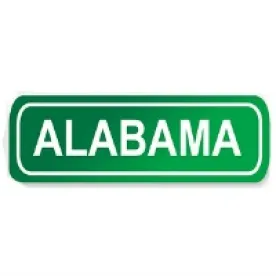On April 20, 2021, Alabama governor Kay Ivey signed into law a name, image, and likeness (NIL) bill, making Alabama the tenth state to enact such legislation.
The new law, which goes into effect on July 1, 2021, allows student-athletes at Alabama colleges and universities to receive compensation for their names, images, and likenesses (NIL) at market value and to hire agents or attorneys to represent them for the purposes of receiving NIL compensation. In sum, the law sets forth several key rules, similar to the requirements of laws previously enacted in other states.
-
It allows a college or university to prohibit student-athletes from entering into contracts with brands or companies in the following categories: tobacco, alcohol, controlled substances, adult entertainment, casinos and entities that promote gambling activities, as well as “[a]ny entity or individual that … negatively impacts or reflects adversely on the postsecondary educational institution or its athletic programs,” in the “reasonable and good faith judgment” of the specific college or university.
-
It requires student-athletes to disclose proposed contracts to their colleges or universities for review prior to execution and receipt of any compensation.
-
It allows a college or universities to prohibit student-athletes from entering into contracts that conflict with contracts held by the specific college or university.
-
It prevents student-athletes from entering into contracts that would require the use of “any registered or licensed marks, logos, verbiage, or designs” of their colleges or universities without the express, written permission of the colleges or universities. The permission may include fees, for the use by the college or university, “by agreement of all parties.”
-
It precludes colleges and universities from compensating their student-athletes for use of their NIL, including as a recruiting inducement or a reward for participation or performance.
-
It prevents colleges and universities and their officers, directors, and employees, along with sponsors and boosters, from compensating or directing compensation to student-athletes or their families for use of their NIL.
-
It requires colleges and universities to “conduct financial literacy and life skills programming for student athletes.”
The law also establishes an Alabama Collegiate Athletics Commission composed of the governor, the lieutenant governor, the president pro tempore of the Senate, the Speaker of the House of Representatives, the minority leaders of the Alabama Senate and House of Representatives, and the chair of the Alabama Athlete Agents Commission. The Alabama Collegiate Athletics Commission is tasked with making rules consistent with the bill, consulting with individuals and groups with knowledge on NIL issues in college athletics, and monitoring compliance with the law. Finally, the law includes specific reporting obligations for potential violations, and it specifies that individuals, other than student-athletes, who violate certain sections of the law shall be guilty of a Class C felony, which includes punishments of up to 10 years in prison.
Alabama joins a growing list of states to pass laws governing the use of student-athletes’ names, images, and likenesses. Arizona, California, Colorado, Florida, Michigan, Mississippi, Nebraska, New Jersey, and New Mexico all have passed similar legislation, and there are 14 other states with legislation pending. Representative Kyle South, who sponsored the Alabama bill, stated that he proposed the bill to ensure that Alabama universities would not be at a disadvantage in recruiting. This comes as no surprise as Alabama football powerhouse schools compete in what some call the most competitive and dominant football athletic conference—the Southeastern Conference (SEC). Florida passed NIL legislation in June 2020, with an effective date of July 1, 2021. One can easily imagine a situation where a top recruit is choosing between an Alabama and a Florida university. Had Alabama not passed similar legislation, there is a chance that the right to receive NIL compensation might tip a top recruit toward a Florida institution. Representative South is not alone in that sentiment. Indeed, when Mississippi passed its law just a few weeks ago, Mississippi Representative C. Scott Bounds indicated that he and many of his colleagues felt the need to support the state’s colleges and universities who could otherwise lose a competitive edge in recruitment without the legislation.
The statements of representatives South and Bounds summarize what many states, colleges, and universities are grappling with right now. Without a federal law or without National Collegiate Athletic Association (NCAA) policy, states are likely to continue to feel the pressure to ensure that their institutions of higher education are not left behind in what is becoming a new arms race in college athletic recruiting. Many believe that the NCAA is waiting to introduce its own legislation until the Supreme Court of the United States issues an opinion in the Alston matter, a case regarding whether the NCAA rules restricting education-related compensation for college athletes violate federal antitrust law. Until then, no one should be surprised if we continue to see a patchwork approach to NIL.




 />i
/>i

